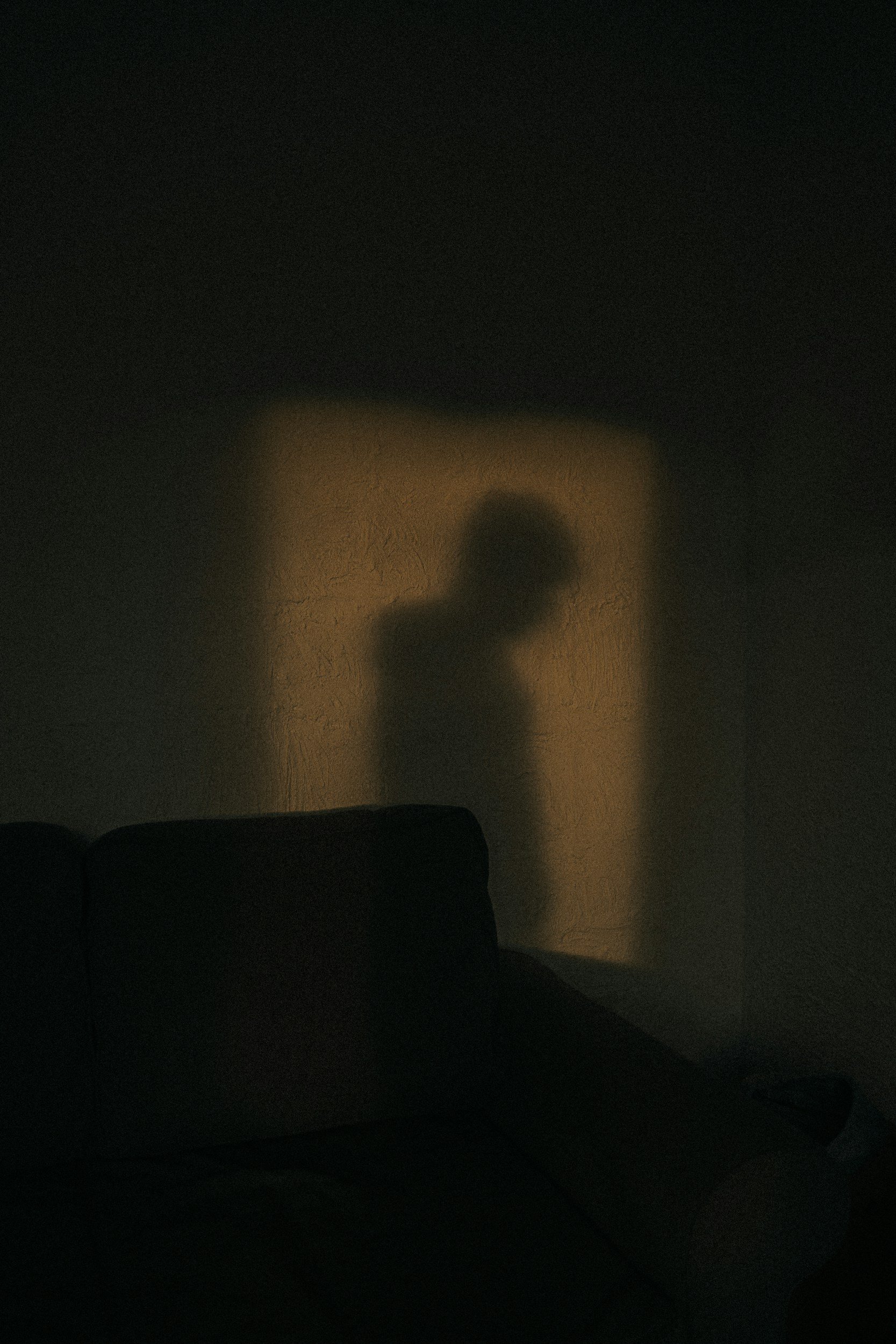
WHY ARE WE OFFERING THIS ALTERNATIVE NARRATIVE BELIEVED BY EARLIER CHRISTIANS?
Why We Began.
Recover Christianity was born out of a deep concern for those who felt their tough questions about faith were left unanswered, leading many to drift away from Christianity. We recognized the need for a space where these challenging questions could be explored openly and honestly, without rigid certitude. We have a heart for parents and their children who are in the midst of deconstructing their Christian faith. Our mission is to help individuals reconstruct their faith in a non-judgmental and understanding environment - finding places of common ground. By addressing these concerns with empathy and insight, we aim to reconnect people with the profound and enduring truths of Christianity.
About The Founder – Vance Brown My Story
I grew up immersed in the Southern Baptist tradition in North Carolina, right in the heart of the Evangelical movement. Church wasn’t just a Sunday event - it was life. Sunday mornings, Sunday nights, Wednesday nights - I was there. My grandfather was a fundamentalist preacher in the Smoky Mountains, my uncle was the leader of a small group that translated the NIV Bible, and my family lived and breathed "inerrant" Scripture. Faith meant believing the right things, following the right rules, and staying on the right side of eternity.
Looking back, it wasn’t fire-and-brimstone preaching that shaped me. It was the quiet assumptions. The idea of a God who would torment you forever wasn’t screamed; it was whispered through hymns and memory verses, woven into the church culture. Scriptures like John 3:18, "whoever does not believe stands condemned already," and Matthew 7:13, "wide is the road that leads to destruction." These verses hovered like storm clouds over our theology. We sang about our sins being washed only by the “blood of Jesus,” and praised the Savior who “saved a wretch like me,” never questioning what kind of God required the torture of his son in order to withhold eternal punishment from us. We didn’t ask why God would create such a system in the first place. After all, didn’t he make the rules? The whole framework was never challenged. It was simply assumed: that a wrathful God demanded justice in the form of blood to be satisfied. And so we sang the hymns, memorized the verses, and internalized a gospel that was soaked in violence, without asking why love or God's system of justice would require a blood sacrifice to begin with.
Salvation was supposedly about grace but only if you believed the right things. It was transactional, wrapped in the language of a free gift, but with fine print: it only applied if your theology was correct. Grace, it turned out, had terms and conditions. Beneath that sat an unspoken moral code, especially around sexual purity, as if that were the true test of holiness and worthiness. Throw in the rules of no drinking, no dancing, no pornography or pre-marital sex, and doing everything right and you could measure your commitment to Jesus.
The fear was constant: fear of sinning, fear of judgment and punishment, fear of being wrong. I internalized the message that I was broken and barely acceptable to God, unless I was covered by the blood. At around age 10, when Billy Graham asked on TV, “If you died tonight, do you know where you would go?” I panicked. That night, I accepted Jesus as my "Lord and Savior," because the alternative was too terrifying to ignore.
I studied the materials, checked all the boxes, and did my best to live up to the expectations. But the more I tried, the more shame crept in. I couldn’t resist all sin - never have and never will. Fear-based faith ruled my life.
I moved to Colorado after a family and marital crisis when I was 32. In Colorado Springs, another evangelical hub, I doubled down: led Christian men's retreats, launched a ministry called Band of Brothers (bandofbrothers.org), and even wrote No Matter the Cost (Bethany House), an evangelical book for men. I was committed to fighting the good fight. A lot of that fight, as I was taught in my Colorado Springs community, was spiritual - against Satan and his demons. The fear wasn’t just about sin or hell anymore; it was about learning how to battle a real, invisible enemy. That was terrifying. Imagine being taught that the most powerful being ever created by God, Satan, was actively trying to deceive, attack, and ultimately destroy you. And not just you, but your family, your community, your soul. You couldn’t see him, but were told he was everywhere - prowling like a lion, infiltrating thoughts, tempting actions, manipulating the world. It made everyday life feel like a battlefield, where failure meant not just earthly consequences, but eternal ones. That level of invisible threat, paired with the weight of personal responsibility, created a spiritual pressure cooker I didn’t yet know how to escape.
My faith felt like an evacuation plan—just trying to protect myself from Satan and his demonic forces, escape hell when I died, and hopefully earn my badge: "well done, good and faithful servant."
To make matters worse, another fear-based narrative skyrocketed out of Colorado Springs during that same time: the "Left Behind" series by Jerry Jenkins and Tim LaHaye. These books—based on the apocalyptic interpretation of Matthew 24, painted a terrifying image of the Rapture, where believers would be whisked away and everyone else would be "left behind" to suffer. The idea that God might abandon you at any moment, even if you thought you were saved, was deeply unsettling. It scared kids. It scared adults. And it reinforced the same anxious theology I was already steeped in: one rooted in fear, control, and the constant worry of not measuring up.
A Crisis That Changed Everything
My About ten years ago, my oldest son, just out of college, sat me down and said, “Dad, I’m an atheist.”
He shared with me, man-to-man and son-to-father, that he couldn’t believe in a God who commanded genocide in the Old Testament, killing not just soldiers, but men, women, children, and even livestock. He was disturbed by how women were depicted in the Bible as lesser than men in God’s hierarchy, by the condemnation of gay people, and by any notion that God would condone slavery in any form. And above all, he couldn’t reconcile how a supposedly loving Father would torment people for eternity, without any redemptive hope, simply for not believing the right things before they died. These weren’t minor theological concerns to him; they were moral dealbreakers. My gut dropped. I had wrestled with some of these same questions myself, but this was my son. His eternity felt at stake.
I asked him to walk me through his journey. At first, he didn’t want to. He made it clear that he wasn’t there to proselytize or argue theology. He simply wanted to be honest with his father and share where he was. But I pressed, probably because I thought I could reason him back into belief. Eventually, and reluctantly, he agreed, but on two conditions:
I couldn’t check my brain at the door.
I had to be open to changing my beliefs if the evidence and my heart pointed me there.
That conversation launched me into a deep, relentless search for truth. This is the point in my life where my relationship with my son and my love for him was more important than clinging to my unquestioned theology. As a lawyer, I used my training to challenge and research all the assumptions. As an Evangelical, I had never studied church history before Martin Luther. Many around me even believed Catholics were going to hell, an idea that now seemed absurd given our shared roots.
What I ultimately found was freedom from fear-based theology, and a return to the God of grace I always hoped was there.
C.S. Lewis and the Wider Hope
As I have shared, growing up in the Bible Belt, the version of God I inherited was a God who loved you… if you behaved. A God who saved you… if you believed the right things in the right way before your final breath. A God whose love, it seemed, came with an expiration date - death.
For decades I carried that weight. And then 10 years ago by studying Scripture and church history even before Martin Luther, life began whispering a different story. Although there were many theologians, philosophers, historians and scholars who greatly influenced me, there was one particular voice from my Protestant upbringing who helped me trust that whisper - C.S. Lewis.
Lewis is one of the few Protestant heroes almost everyone respects. Pastors quote him, small groups study him, and he has a way of sneaking past our defenses. He typically taught the way Jesus did, through stories. What surprised me, what cracked something open, was that Lewis’s understanding of salvation was far more expansive than the narrow version many of us were raised on.
Lewis believed that Jesus is the Way, but that people might walk that Way without even knowing His name.
In Mere Christianity, he hints that Christ’s work reaches farther than we imagine, saying that those who are being saved by Christ “may not know it until after death.” And then, in The Last Battle, he removes all ambiguity. The noble Calormene soldier Emeth, who had served a false god Tash his entire life, stands before Aslan expecting punishment. Instead, the Lion embraces him.
“All the service thou hast done to Tash,” Aslan tells him, “I account as service done to me.”
It was Lewis’s way of saying:
The heart matters more than the label. God looks at the direction of a life, not the doctrinal accuracy of a prayer.
And it wasn’t just the question of whether other religions offered a path to salvation. Lewis also seemed unconvinced that death slams the door on redemption. In The Great Divorce, heaven sends a bus into hell every day. Anyone can leave. Anyone can step into the light. Nothing is locked—except from the inside.
Lewis’s hell is not a torture chamber—it’s a refusal to receive love. A prison whose door we ourselves hold shut.
That picture felt startlingly different from the one I grew up with. But it rang true. It sounded like true good news. It sounded like stories Jesus would tell.
It also aligned with something I had begun to sense in the deepest moments of my life: that a God who is infinite Love could never abandon his children - not in this life, not in the next, not ever. It was consistent with my journey with my own son, when my love for him became bigger than my engrained theology and sent me on a quest to discover that God’s love is truly unending, and grace must be too.
The hope that nothing, “not even death,” as Paul wrote, can separate us from the love of God.
The hope that God never stops seeking, inviting, healing, transforming and restoring.
The hope that every human being is born NOT into original sin (a theory that didn’t arrive into Christianity until the 5th century), but every human is born into original blessing, Genesis 1:31 (“Then God looked at all he had made, and he saw that it was very good.”). We are made in the image of God, bearing the imprint of divine goodness that no amount of wandering can erase.
Lewis helped give me permission as a Protestant to believe that God’s love doesn’t expire, that redemption doesn’t have a deadline, and that grace isn’t a reward for the morally impressive - it’s the air we breathe.
For me, this became the turning point:
God is not wrath.
God is not waiting to catch us in a mistake.
God is the relentless Father sprinting down the road, robe flying wildly behind Him, eager to bring us home.
And maybe, just maybe, no one is ever beyond that embrace
Recover Christianity
Throughout my working career as an entrepreneur, CEO, and lawyer, I’ve taken on big challenges, but none have ever been as important as this one. Nothing has mattered more to me than my understanding of who God is, who we are, and what it really means to follow Jesus.
Recover Christianity was born out of this journey. I know I’m not alone in questioning the fear-based, transactional version of faith that so many of us inherited. This project is about rediscovering the heart of Jesus, embracing the mystery of faith, learning what the early Church believed, and letting go of toxic narratives that have driven so many away from Christianity.
If you’ve ever felt like you had to choose between your heart and your faith, your intellect and your beliefs - this space is for you. If you have a child who is leaving the Christian faith, or is considering doing so and you are concerned - this space is for you.
A More Beautiful Ending Than I Expected
I’m now 63 years old and after 30 years recently moved back to Durham, back to the Bible Belt. Both my son and I went through a long, difficult season of deconstruction and disorder - asking hard questions, challenging old assumptions, and wrestling with doubt. But what we found on the other side wasn’t the absence of faith, but its restoration.
Today, we are both passionate followers of Jesus and more convinced than ever that his way, and truth, and life is good news for everyone. This journey didn’t destroy our faith. It restored it with much more peace and joy in our lives. If you find yourself in the wilderness, wondering if there’s a way forward - know that there is.
Yet before we can embrace a faith without fear through reconstruction and reordering our beliefs, a time of recovery from the wounds of a corrupted view of Christianity may be necessary. There is another narrative, and it is more in line with what the early followers of Jesus believed before the church led us astray.
Let’s recover Christianity together.
ABOUT OUR LOGO.
The Recover Christianity logo intertwines an infinity symbol, a wave, and a heart, using two shades of blue to visually encapsulate our core mission.
The infinity symbol represents God's infinite love—boundless, unchanging, and ever-present. It reminds us that grace is not a transaction but an eternal embrace. (Romans 8:38-39)
The wave, composed of three strands, reflects the trinitarian flow—Father, Son, and Spirit—guiding us through life’s uncertainties. Embracing a God who is FOR us, the Father; a God who is BESIDE us, the Son; and a God who is IN us, the Spirit. It also symbolizes the movement of faith and the creation itself: ebbing, flowing, evolving, yet always connected to the Source. (John 7:38)
The heart embodies the essence of the Gospel: Love. Love for God, love for others, love for truth. (Matthew 22:37-39)
The two shades of blue represent the union of the old and the new—ancient wisdom and fresh revelation, deep tradition and open exploration. Recover Christianity seeks to hold onto what is eternally good, true, and beautiful while embracing the Spirit’s movement in the here and now. (Matthew 13:52)
Together, these elements visually declare our passion: to recover a faith rooted not in fear, but in love; not in exclusion, but in belonging; not in getting it right, but in transformation.









